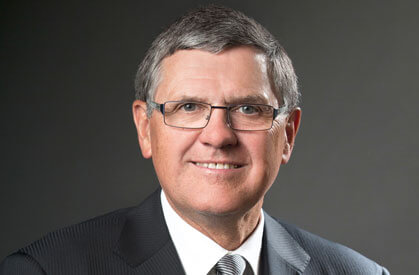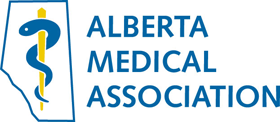Final thoughts
September 25, 2015

Dear Member:
This is my last opportunity to write a President’s Letter. My term concludes tomorrow at the fall 2015 Representative Forum (RF) and annual general meeting. As I turn the presidency over to Dr. Carl W. Nohr, I will be giving my valedictory address. I wanted to share a few highlights here for those who are unable to attend in person.
Thank you
I would like to begin by saying, thank you.
I have been honored with many things in my life. I was blessed with being born in a country where a boy from a very working-class family had the opportunity to attend university and train as a physician.
I have been honored by the trust given to me by my patients over the years and by the trust of my colleagues who trusted their patients to my care.
Finally, I have been honored by the trust and responsibility given to me by you, the members of the Alberta Medical Association (AMA), over the last 20 years as I worked on negotiations and agreements on your behalf and culminating in your election of me as president.
Service demand and finding the way to pay
When I became your president, I had the unusual advantage of 20 years’ experience in medical politics. As a profession, I think it’s common for us to feel often that things are radically new and different from earlier days. Unfortunately I do not think that health care has made many fundamental changes in delivery and service over those 20 years – although incredible new techniques and treatments have evolved.
The confluence of increasing demand for services, the development of ever more expensive treatments and the decreasing ability of government to find the way to pay are now reaching a crescendo.
We cannot begin to manage these problems unless we rapidly enter into new styles of practice and management.
The AMA has spent 20 years putting together the crucial building blocks for this revolution, sometimes with the help of government and sometimes alone. I can think of many examples, but here are three:
- We created the Physician Office System Program over a decade ago and today we are about to develop secure messaging for physicians. What business today doesn’t have these things in place?
- We created primary care networks (PCNs). Our CEO Mike Gormley wrote the first paper on the concept in 1996. Now, PCNs must expand in service capacity. They must be recognized not just by patients as their “medical home” – but also by physicians themselves from a practice point of view. PCNs must be linked much more to the specialty services that support them – and that is why we are promoting clinical pathways as the RF will hear at our meeting this weekend.
- We created programs to support change in practice like the Practice Management Program and Toward Optimized Practice. We built the Physician and Family Support Program to support doctors in trouble – and programs to deal with financial issues that deeply impact practice like medical liability reimbursement under the Canadian Medical Protective Association.
Physicians have made it work
All of this work has required an enormous amount of unsung, selfless effort by a very large number of members serving on committees, boards and task forces. This communal wisdom, conjoined with a functional governance structure that encourages change and new blood have been the key to our success. We have avoided the terrible infighting seen in some provinces, which has allowed us to put forward our points of view in a strong, coherent way. This has benefitted both us and our patients.
I do think that we are at a crossroads today. We cannot continue to avoid uncomfortable changes that will eventually provide us with accurate and accessible information in real time. We need that to assess our care and the way we provide that care. We must find a way to create a care model for complex patients that is satisfactory to them and affordable for society. This means we must be open to different funding models, care patterns, and new and different roles for doctors – and I mean all doctors, specialists and primary care doctors. At the same time, we need to improve the timelines of access, especially for those with simple problems that pop up unexpectedly.
The change must begin with us
We have not done well in changing these things in the last 20 years. A big reason is the inevitable interference from well-meaning politicians and the stultifying effects of ever-increasing, overwhelming bureaucracy.
However, many doctors have also been slow to embrace change. An “Ah-ha!” moment came to me many years ago as I outlined all the advantages of a strong PCN to a friend and colleague. He seemed increasingly upset and finally I asked why. His answer: “What if I don’t want to change and others do, and they eat my lunch?”
Change is often difficult; I hate change, as my wife will tell you. However, I also know that if we don’t change we will not survive as the profession we know today. I am also convinced that if we don’t push hard for real, significant change, it won’t happen. When things finally collapse, a new system will arise; doctors may not have much say in it. We have seen that in the United Kingdom and United States of America.
Thank you all for your attention and reading my letters this year. I have appreciated and learned from the many emails, phone calls and hallway conversations they have generated.
If the members of the profession work together as they have this year and in recent years, I know we can overcome challenges that lie ahead. I appreciate your support and your friendship. I wish all of you success and happiness in the years to come.
Email president@albertadoctors.org or leave a comment below.
Regards,
Richard G.R. Johnston, MD, MBA, FRCPC
President

1 comment
Commenting on this page is closed.
paul armstrong
7:31 AM on September 26, 2015
Richard
Thanks you for a thoughtful and sage assessment of the heath of heath care in Ablerta. As you note ,we have a real opportunity now to modulate needed change. In serving our patients our commitment to quality care and helping them to make wise choices is clearly key: so too is a move to aligning the financial incentives accruing from our work with the goals that we and our patitents share.
You have providied the profession with exemplary service. Your advice and guidance will continue to be sought.
With appreciation and best wishes
Paul W Armstrong MD